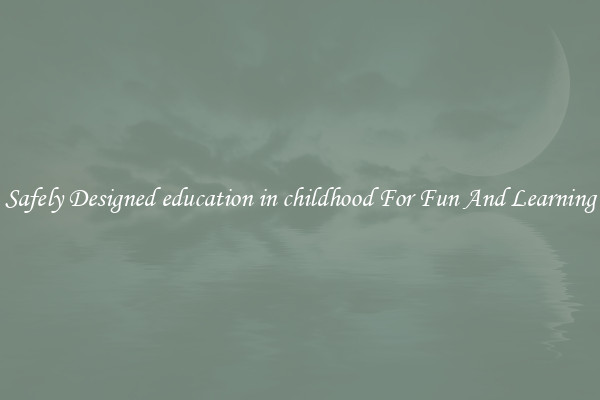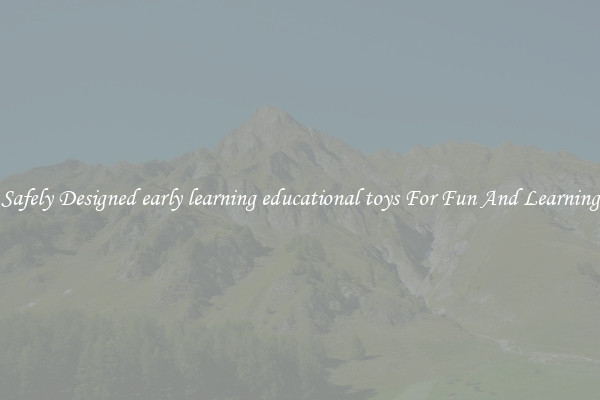Safely Designed education in childhood For Fun And Learning
As children begin their educational journey, it is crucial for them to have a safe and nurturing environment that fosters both fun and learning. Safely designed education in childhood is not only important for physical safety, but also for emotional well-being and academic success.

When children feel safe and secure in their learning environment, they are more likely to feel comfortable exploring new ideas and taking risks. This sense of safety allows children to engage in hands-on activities, group projects, and creative pursuits without fear of judgment or failure. In turn, children are able to develop crucial skills such as critical thinking, problem-solving, and collaboration.
One aspect of safely designed education in childhood is ensuring that the physical environment is free from hazards and conducive to learning. This may involve implementing safety measures such as childproofing furniture, securing loose cords, and providing ample space for movement and exploration. Additionally, it is important for educators to create a positive and supportive classroom culture where children feel valued, respected, and included.
In addition to physical safety, emotional safety is also a key component of safely designed education in childhood. Children need to feel emotionally secure in order to develop healthy relationships with their peers, teachers, and caregivers. This can be achieved through positive reinforcement, clear communication, and empathetic listening. By creating a culture of kindness and compassion, educators can help children build self-esteem, resilience, and empathy.
Furthermore, safely designed education in childhood should prioritize the holistic development of children, including their physical, emotional, social, and cognitive growth. This means providing opportunities for art, music, physical activity, and play, as well as academic instruction. By engaging in a variety of activities, children can discover their interests and strengths, and develop a lifelong love of learning.
Overall, safely designed education in childhood is essential for creating a positive and enriching educational experience for children. By prioritizing physical and emotional safety, as well as holistic development, educators can help children thrive academically, socially, and emotionally. When children feel safe, supported, and valued, they are able to have fun, explore new ideas, and reach their full potential as learners and individuals.

View details

View details

View details

View details








